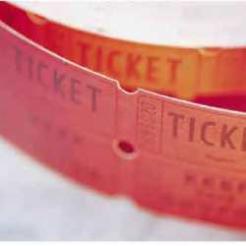A report commissioned by the Department for Culture, Media and Sport has suggested the government considers increasing the minimum proportion of ticket sales which society lotteries are required to return to good causes.
Society lotteries are at present obliged to return at least 20 per cent of their turnover to good causes. A report into the impact of the Health Lottery and other society lotteries on the National Lottery, commissioned by the DCMS, Gambling Commission and the National Lottery Commission, has suggested that government consider a “modest increase” in this limit to boost the amount donated by existing lotteries and “raise the bar” for new entrants.
The report, by Nera Economic Consulting, backed Health Lottery claims that it has increased the amount of money being given to health causes. However, the report said “it remains a relatively inefficient way of supporting good causes (as only 20.3 per cent of proceeds are passed on).
“If a future entrant were to take a significant number of players from existing, and more generous, society lotteries, or even reduce direct donations to certain good causes, then there might be a greater risk that total donations could fall, or that certain charities would suffer.”
The ‘80:20’ rule, as the return to good causes limit is known, is a contentious part of society lottery regulation. The Institute of Fundraising has called for it to be abolished, and a consultation into lottery reform spearheaded by nfpSynergy’s Joe Saxton has proposed that the returns be calculated over a five-year time span.
The Nera report, however, suggests that increasing the minimum proportion of proceeds rule is a better way of regulating society lotteries, and multiple lotteries like the Health Lottery, than changing the law to make structures such as the Health Lottery illegal or imposing a cap on society lottery expenses.
Around 93 per cent of society lotteries presently give more than 30 per cent of their income to good causes, according to the Nera report. Nera’s own research suggests that there is no common theme among those lotteries which give closer to the legal minimum proportion, but the report calls for more research into whether there may be some society lotteries which are unable to increase their return to good causes.
Nera suggests some exemptions should be explored should the government consider increasing the minimum good causes return of society lotteries, particularly for new society lotteries but also for organisations which have low general turnover.
The report was first made public last Friday when brought up by the Health Lottery’s lawyer at the High Court, where Camelot has sought a judicial review of the Gambling Commission’s decision not to conduct a wholesale review of the Health Lottery licence. The report included an estimation that the Health Lottery is perhaps taking around £300,000 worth of sales from the National Lottery a week, not the £1m previously claimed by Camelot.
Judges have not yet decided whether to grant Camelot the judicial review.
Change to lotteries 80:20 rule proposed
18 Jul 2012
News
A report commissioned by the DCMS has suggested the government considers increasing the minimum proportion of ticket sales which society lotteries are required to return to good causes.










